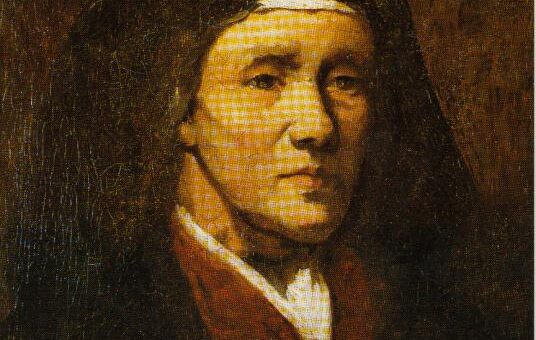
April 2025 report filed by Historian Johnny McLaughlin:
Honora Nagle was born on an unknown date, around 1718. She was born in the parish of Killavullen, County Cork, the eldest of seven children, and notably the cousin of Edmund Burke.
The Nagle family was once a prosperous and notable family that lived and owned that area of County Cork for centuries. However, this changed shortly after the Glorious Revolution in England, which deposed the Catholic King James II of England (VII of Scotland) and instituted the Protestant William of Orange.
James was exiled yet still claimed the Thrones of England, Scotland, and Ireland, a claim backed by the Pope.
The Nagles were loyal to James, known by Catholic loyalists as the King over the Water. For their treason to William, they were stripped of their lands. Honora’s uncle Joseph had to convert to Protestantism to allow his family to own land.
Because of the Irish Catholic majority’s loyalty to James, the English Parliament passed the
Penal Laws. Catholics (and Presbyterians) were denied public office, were barred from
marrying Protestants, had strict red tape regarding their buying and inheriting property, were barred from being educators, and many other rules restricted their lives in Ireland. Speaking of the Irish language was banned as well.
Honora, given the nickname “Nano” by her family, was believed to have attended a “hedge school”, secret schools that illegally taught the Irish language and Catholic faith.
Despite the Penal Laws, Nano had a relatively affluent childhood. She and her sisters spent
time in Paris and enjoyed the upper-class social life there. She recounts a moment where, while
at a socialite party, she saw a group of impoverished people huddled in a church doorway,
seeking shelter. She was struck by the contrast between them and her own privileged life. This sparked the seed for her love for the poor.
After her parents died, Nano tried to enter a convent in Paris and tend to the poor there.
Her spiritual director advised Nano to help the poor in her native country instead.
Nano returned to County Cork. There, she established a secret school in a rented mud cabin, in direct defiance of the law, as she was a Catholic and was barred from opening a school. It was meant specifically for impoverished children. At first, she taught thirty children, but with the help of her brother, who was nominally a Protestant to keep the family wealth but in reality a crypto-Catholic, she expanded the schools all over County Cork, educating over 200 girls.
Within a few years, she had opened seven schools, five for girls and two for boys. After instructing the children during the day, Nano would visit the elderly among the poor at night, bringing them food and medicine.
Nano founded a new order of nuns on Christmas Eve 1775, the Institute of Charitable
Instruction of the Sacred Heart of Jesus. This was the first convent of what would be known
as the Presentation Sisters.
While initially devoted to serving and educating the poor in County Cork, the Presentation Sisters are active in 19 countries as of this year. By the time of the order’s founding, the Penal Laws were beginning to be repealed. In 1793, Parliament passed the Catholic Relief Act, which, among other things, allowed the Presentation Sisters to teach more openly.
Nano Nagle died on April 26, 1784, of tuberculosis. She was 65. As mentioned earlier,
her schools quickly became international, serving 19 countries today, including the United States. In 2000, Nano was voted “Irish Woman of the Millennium,” and a 2005 radio poll selected
her as Ireland’s greatest woman ever.
The Church opened her cause for sainthood in 1984, on the bicentennial of her death. She was declared Servant of God in 1994, and Pope Francis declared her Venerable in 2013. Her cause for sainthood is ongoing.
Venerable Nano Nagle, founder of the Presentation Sisters, pray for us!



